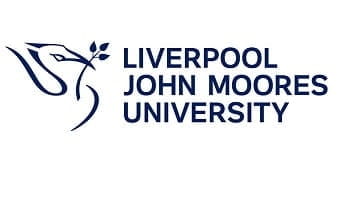Course modules
What you will study on this degree
Further guidance on modules
Modules are designated core or optional in accordance with professional body requirements, as applicable, and LJMU’s Academic Framework Regulations. Whilst you are required to study core modules, optional modules provide you with an element of choice. Their availability may vary and will be subject to meeting minimum student numbers.
Where changes to modules are necessary these will be communicated as appropriate.
Core modules
Introduction to Programming
20 credits
20 credits
Computer Systems
20 credits
20 credits
Professional Practice
10 credits
10 credits
Data Modelling
10 credits
10 credits
Software Engineering Principles
20 credits
20 credits
Software Engineering Workshop
20 credits
20 credits
Introduction to Web Development
20 credits
20 credits
Core modules
Group Project
20 credits
20 credits
Database Systems
20 credits
20 credits
Object-Oriented Systems
20 credits
20 credits
Data Structures and Algorithms
20 credits
20 credits
Automata, Languages and Computation
20 credits
20 credits
Mobile and Web Development
20 credits
20 credits
Core modules
Project
40 credits
40 credits
User Experience Design
20 credits
20 credits
Applied Data Science
20 credits
20 credits
Virtualisation and Cloud Computing
20 credits
20 credits
Embedded Systems
20 credits
20 credits
Fees and funding
Entry requirements
Please choose your qualifications below to view requirements
Grades/points required from qualifications:
Work out how many UCAS points your qualifications are worth using the UCAS Tariff Calculator.
Qualification requirements
A levels
Applicants should have or expect to obtain between 112-128 UCAS tariff points including a minimum of 64 points from Maths and one of the following: Physics, Chemistry, Computing, Further Maths, Electronics or Engineering
BTECs
BTEC National Diploma BTEC Extended Diploma - DMM / 112 UCAS tariff points. Engineering discipline required with a Distinction grade in Further Mathematics unit.
International Baccalaureate
Applicants should have or expect to obtain between 112-128 UCAS tariff points including a minimum of 64 points from Higher level Maths and Physics.
Alternative qualifications considered
Applicants should also have five GCSE (or equivalent) passes of at least grade C including Mathematics. Applicants must have English language skills at the level required to study the programme, these are: a GCSE ‘O Level’ English of at least grade C (or IELTS 6.0 or equivalent) ; or the candidate will have studied a first degree that has been taught and assessed in English.
International requirements
Other international requirements
HSSC - Intermediate / Higher Secondary Certificate: entry to level 4 requires a 75% overall award mark ; mathematics passed at 70% or above in final year, passes in physics and chemistry. Students who achieve less than any of the entry requirements stated in this section ‘Criteria for Admission’, would be required to either: (i) register for an International Foundation Year programme [Level 3]; or (ii) have successfully completed an International Foundation Year programme for entry to Level 4.
How to apply
Securing your place at LJMU
Your university life
From accommodation and academic support to clubs and societies. Find out what LJMU has to offer.
Talk to our students
Connect with a current LJMU student for advice and guidance on university life, courses and more.
See what our students are saying
At LJMU we want you to know you're making the right choice by studying with us. You can see what our students are saying about their experience with us through their reviews on the following websites:
Related Links
News and views
Browse through the latest news and stories from the university










The university reserves the right to withdraw or make alterations to a course and facilities if necessary; this may be because such changes are deemed to be beneficial to students, are minor in nature and unlikely to impact negatively upon students or become necessary due to circumstances beyond the control of the university. Where this does happen, the university operates a policy of consultation, advice and support to all enrolled students affected by the proposed change to their course or module.
Further information on the terms and conditions of any offer made, our admissions policy and the complaints and appeals process.









